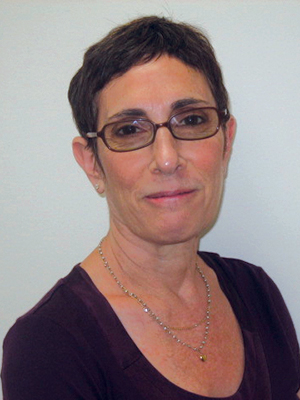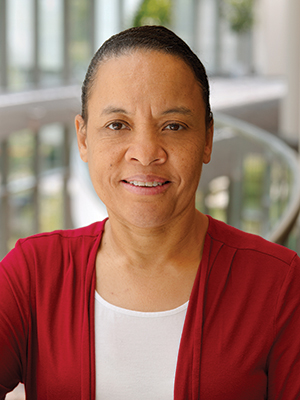I have completed cancer treatment, but I’m still in pain much of the time. Can acupuncture help?

Barrie R. Cassileth Chief of Integrative Medicine Service at Memorial Sloan-Kettering Cancer Center in New York City Photo courtesy of Memorial Sloan-Kettering Cancer Center
BARRIE R. CASSILETH: Most major cancer centers have accepted the value of acupuncture as a safe and effective way to help with cancer-related and treatment-related symptoms, such as hot flashes, shortness of breath, chronic fatigue, pain, anxiety and neuropathy.
Acupuncture can greatly reduce pain, although it won’t eliminate it. Pain reduction has a number of benefits. If you can reduce the number of pain pills, you can possibly eliminate some of the medicine’s side effects, including constipation and nausea. You can also save money. Acupuncture may also help ease anxiety and stress.
Promising results indicate that acupuncture may also help reduce lymphedema, a chronic condition in which the arm swells after lymph node removal. I have published two pilot studies that showed acupuncture actually reduced the circumference of the arm and kept it reduced. Now, we are conducting a randomized clinical trial to determine whether these results can be replicated in a larger sample size.
Acupuncture is also showing promise in treating another cancer treatment–related condition, known as xerostomia, which is the inability to produce saliva. Chemotherapy and radiation treatment can shrink the salivary glands, especially after throat and neck cancer treatment. The condition makes it difficult for survivors to swallow and talk. Acupuncture is able to stimulate the tiny little shreds of salivary glands to give patients the ability to eat and talk again. This can be a miracle for patients.
To practice in the United States, an acupuncturist must be certified by the National Certification Commission for Acupuncture and Oriental Medicine. Cancer survivors should try to seek out an acupuncturist who is trained in treating cancer patients. At Memorial Sloan-Kettering Cancer Center, we offer a 21-hour course that teaches appropriate treatment of cancer patients. Remember, as well, that acupuncturists should never say they can treat your cancer. Acupuncture is not a replacement for cancer treatment, but it’s worth a try to see if it can help you feel better.
Acupuncture and Cancer // The American Cancer Society offers an overview of several complementary therapies, including acupuncture, for managing cancer. // The National Certification Commission for Acupuncture and Oriental Medicine provides a searchable database of acupuncturists. // Memorial Sloan-Kettering Cancer Center explains the scientific basis for acupuncture and cites recent studies.
I am caring for my mother who has cancer, but I am feeling overwhelmed. How can I get my siblings to chip in more?

Sara Goldberger Senior Director of Program at Cancer Support Community in New YorK City Photo courtesy of Cancer Support Community
SARA GOLDBERGER: It’s critically important that you get the respite you need. Taking time away will make you a better caregiver. I use an analogy of a watering can and a garden to make this point.
Imagine your loved one is the garden, and you are the watering can. If you’re caring for a garden, it needs water. If you keep pouring and never take time for yourself, your reserves will run dry. You will have a hard time providing the care your mom needs. You’ll find yourself running on empty, making mistakes, losing patience and saying things you don’t mean.
Getting help starts first with being big enough to ask for it: See if a sibling or friend can stop by so you can go hit some golf balls, watch a movie or just take a walk. Be sure to allow people flexibility in setting a time to come see your loved one.
Find someone to talk to about your frustrations. You’re less likely to have strong negative emotions and are more likely to feel in control if you can vent. You can also check with local caregiver support groups, faith-based organizations, and your hospital or hospice for support.
Because you are in charge of your mother’s care, it may feel like you are the only one taking care of her. But be sure to examine the whole picture. Perhaps a sibling can’t be there but can handle the bills. Be fair about your siblings’ limitations, even though it feels like you are shouldering a lot of the burden. Most important, if you do have a sibling who offers to share the load, make sure to accept the offer for help without criticism. You have to be open to getting help that may not be exactly the way you would do it.
You can also talk to your siblings to see if they can help pay for a part-time aide. If you need help starting the discussion, ask a hospital social worker to meet with your family. Most of all, know that needing a break doesn’t make you any less of a daughter or son. To be a strong caregiver, you must also care for yourself.
Get Caregiver Support // The Cancer Support Community provides resources to help you take time for yourself while caring for a loved one. // The Caregiver Action Network offers opportunities to talk with other caregivers. // Help for Cancer Caregivers shares tips for increasing communication and holding family meetings.
I am an animal lover. Can I still take care of my pets while undergoing cancer treatment?

Lisa C. Richardson Medical Officer at the Centers for Disese Control and Prevention In Atlanta Photo courtesy of The Centers for Disease Control and Prevention.
LISA C. RICHARDSON: Pets can help reduce stress and anxiety and improve overall mood. Often, pets are considered a part of the family and can be a great source of joy, laughter, excitement and unconditional love.
But your pet may also be a source for unwanted germs during treatment, which can raise your risk of getting a life-threatening infection. When you are healthy, your immune system acts as a protective barrier against these threats. However, since chemotherapy kills healthy white blood cells, your infection risk is higher during treatment. So you do need to be careful.
Your chance of getting an infection increases approximately seven to 12 days after you finish chemotherapy. This is usually when your white blood cell count is the lowest. This time frame will depend on the type of chemotherapy you are receiving, so check with your doctor or nurse to determine when this will occur.
Since your pet’s germs can enter your body through scratches on your skin or through contact with your mouth and hands, the Centers for Disease Control and Prevention recommends that you wash your hands with soap and water after playing with or caring for pets, and before eating or handling food. If you do get scratched or bitten by your pet, immediately wash the area with soap and water. Don’t let your pet lick your mouth or any open cuts or wounds.
When cleaning up your pet’s waste, protect your skin by wearing vinyl or household cleaning gloves and wash your hands immediately after. If possible, have someone else change the litter box.
Avoid pets that are known to pass salmonella to humans. Salmonella, found in feces, can be passed to people through contact with the pet’s hair, claws or mouth. Pets known to carry salmonella include reptiles, such as snakes, lizards and turtles; some birds, such as baby chicks and ducklings; fish, frogs and toads; farm animals; and “pocket pets,” such as mice, rabbits, ferrets, gerbils, hamsters and guinea pigs.
Remember to constantly monitor for signs of an infection. You should always have a thermometer on hand to check your temperature. Call your doctor immediately if you have a temperature of 100.4 F or higher for more than one hour, or a one-time temperature over 101 F.
Minimize Risk of Infection // 3 Steps Toward Preventing Infections During Cancer Treatment can help you recognize signs of infection and protect yourself. // The National Institutes of Health offers information on coping during chemotherapy treatment. // OncoLink provides tips on how to minimize your infection risk.
Cancer Today magazine is free to cancer patients, survivors and caregivers who live in the U.S. Subscribe here to receive four issues per year.




